Minicoy islanders battle to preserve ancestral Maldivian language
The local Dhivehi dialect was removed from the school curriculum.
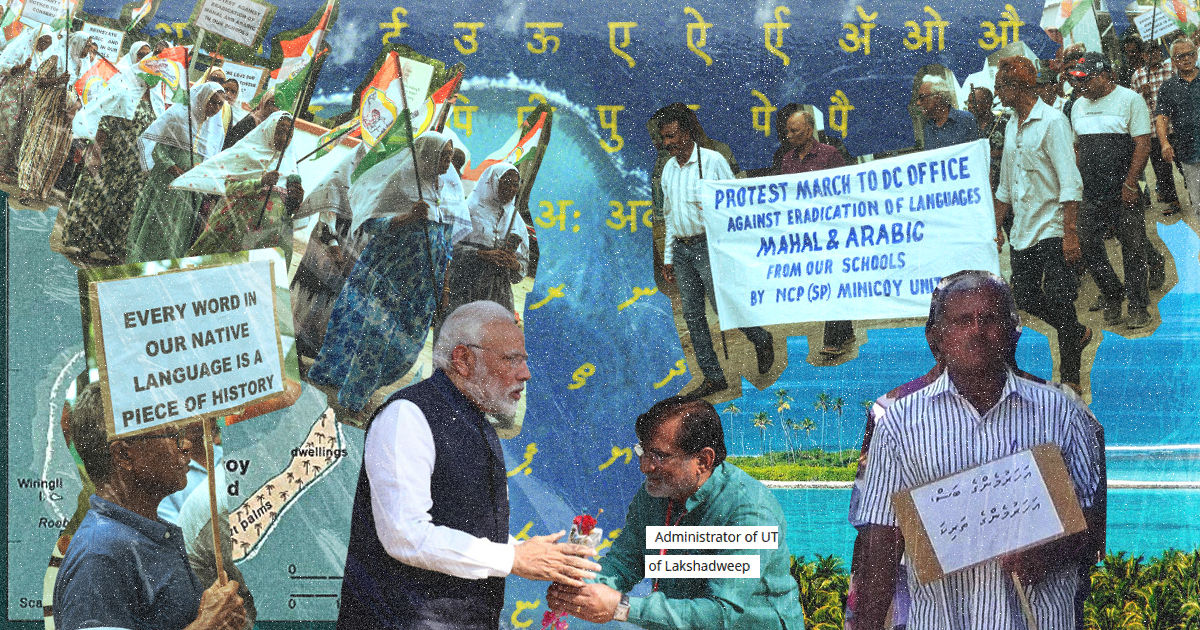
Artwork: Dosain
09 Jun 2025, 13:30
The last schools teaching Mahal – a dialect of Dhivehi that connects the 11,000 islanders of Minicoy to their Maldivian roots – will end instruction this year under new Indian government policies, severing a linguistic lifeline that has connected the southernmost island of Lakshadweep to the Maldives for centuries.
Mahal (from Mahaldeep, the ancient name for Maldives) is written in the same flowing Thaana script of Dhivehi, the native language spoken across the Maldives. It was taught in Minicoy schools until the third grade. But on May 14, the Lakshadweep administration announced that all schools will be transitioning to a three-language policy of English, Malayalam, and Hindi for all grades.
Minicoy islanders have since been protesting against the replacement of Mahal and Arabic as third languages in the school curriculum. Teachers have petitioned for Mahal's reinstatement. In a letter to the Lakshadweep administrator, an opposition MP described Mahal as central to the islanders’ cultural identity and Arabic as integral to their religious practices.
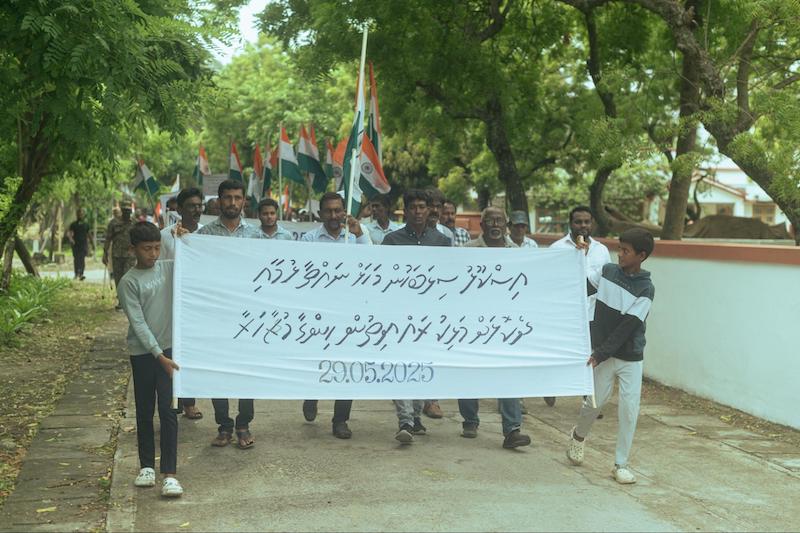
“Removal of Mahal came to existence recently, and it’s only affecting the people of Minicoy. Along with Mahal, Arabic is also being removed, which affects the other islands,” said Mufeedudheen Monage, 28, a native of Lakshadhweep.
Mufeedudheen grew up in the archipelago. After following his passion and backpacking across India to document the wonders of the mainland, he returned to Lakshadweep in 2024. Since then, he has been documenting the culture, history, and lifestyle of his tribe.
“We’re not just protesting, we’re preserving our identity. Our culture. Our right to exist,” he wrote in a social media post that launched the #SaveLakshadweep protests against India’s push to acculturate the 36 islands of the Union Territory of Lakshadweep, driven by fear of the erasure of their identity and native tongue.
Language under threat
Minicoy, locally known as Maliku, joined the territory following a contested people’s referendum in 1956. After gaining independence from the British Empire, the newly-formed India later won over the Laccadive islands. It was renamed Lakshadweep.
The shared history of the people of the Maldives and Lakshadweep remains elusive without proper written documentation. But oral traditions from the Indian territory sing of shared ancestry. According to Maliku sources, their present population descends from two Maldivian princesses who traveled to Minicoy centuries ago. However, following conquest by Indian kingdoms and colonisation by Europeans, the island of Minicoy was slowly lost to the Maldives.
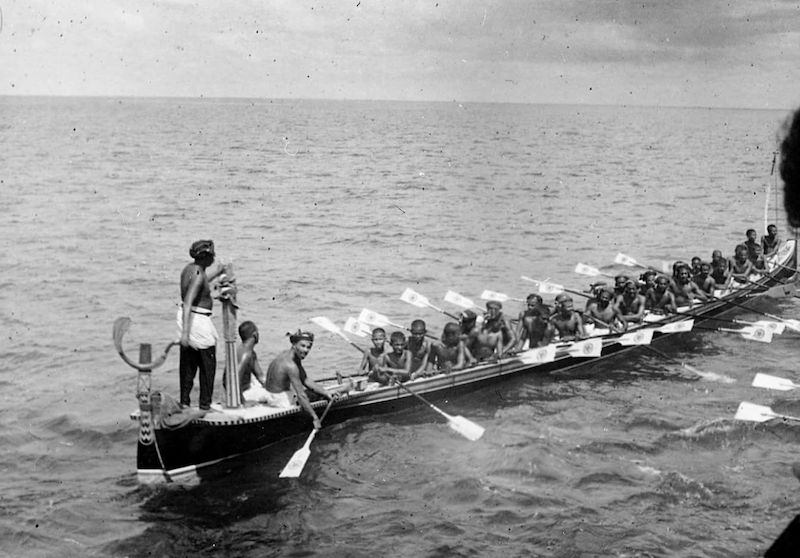
But the people of Minicoy retained linguistic, cultural, and historical identities derived from the Maldives. Their current lifestyle offers a glimpse into the Maldives before modernisation – an idyllic, slow-paced lifestyle of fishing and farming on beautiful, ecologically rich islands.
The language of Mahal varies from Dhivehi, incorporating elements of Hindi, Malayalam, and English, according to Mariyam Latheefa (name changed to protect privacy), who has many close friends in Maliku, some of whom come to the Maldives to visit her.
“The Maliku people are very kind. They treat us like brethren when they see us – they treat us to meals, share their stories, and even come to the Maldives. Maliku people are in the Maldives working on boats, some of them are even married to Maldivians,” she told the Maldives Independent.
Over the years, Maldivian professionals attempted to support the teaching of Mahal in Maliku. But their efforts were thwarted by a lack of political will.
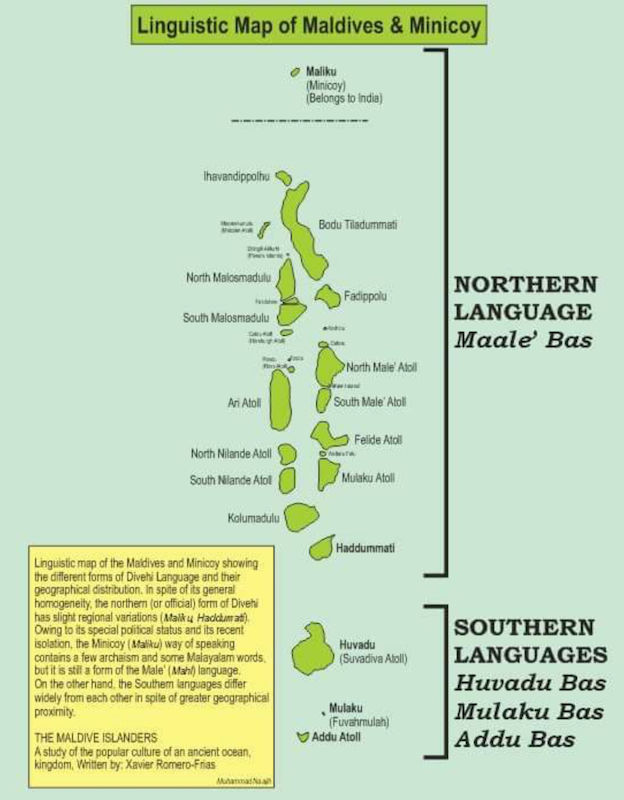
Beyond Minicoy
Lakshadweep avoided the tumultuous politics of the mainland until the assignment of its first non-bureaucratic administrator in 2021, BJP leader Praful Khoda Patel, who enacted a series of controversial reforms that sparked protests from the populace, 93 percent of whom are indigenous Muslims.
He was accused of passing the Prevention of Anti-Social Activities Act, also known as PASA or Goonda Act, without consulting the Lakshadweep government. The law, commonly employed in the mainland on national security grounds, was seen as an infringement on civil rights.
In 2021, the new administrator unveiled the Draft Lakshadweep Development Authority Regulation, which proposed changes to existing land ownership. It gave powers to the government to choose any land for “development” activities, undermining the right of islanders to possess and retain their property. The regulation imposed restrictions on questioning such developmental plans.
As a result, fishers and farmers have been facing an increasing risk of having their sheds demolished for the government’s building plans. According to residents, protests against the new rules have been ongoing since 2021.
“Protesting here wouldn’t make a difference as it’s only passing a piece of paper from one desk to another of the government and it reaches the central government,” said Mufeedudheen.
Mounting resistance
The multi-cultural archipelago is also facing restrictions to their food and diet, impacting daily life and religious practices. Beef is a staple in Muslim and Dalit cuisines. The Muslim-majority islanders have been protesting against new regulations that banned the sale, possession and transport of beef or beef products.
The administration’s 2021 Lakshadweep Animal Protection Regulation banned the slaughter of cattle without a certificate. Violators face life imprisonment and a ₹500,000 (US$ 5,800) fine.
The islander’s appeal against a meat ban in Lakshadweep’s school menu was dismissed by the Supreme Court in 2023. The new regulations prohibited non-vegetarian foods. The ban infringed upon the heritage, ethnic culture, dietary habits, and rights of the people granted by the Indian constitution, the appeal contended. The administration has also been shutting down dairy farms in the Union Territory.
A near total-ban on sale and consumption of alcohol in place since 1979 was also removed. The legal changes proposed allowing bars to boost tourism.
The moves came amid a diplomatic row between India and the Maldives in January 2024,, as the Indian government sought to promote Lakshadweep as an alternative holiday destination in the Indian Ocean.
In May 2021, Patel, the administrator, told The Print that he was only seeking the "development of Lakshadweep" and compared its tourism potential to that of Maldives.
"Why is it that people are waiting to go to Maldives, but are not even willing to come to Lakshadweep?” he asked. “It is to develop tourism and for long term benefits that we are introducing the LDAR.”
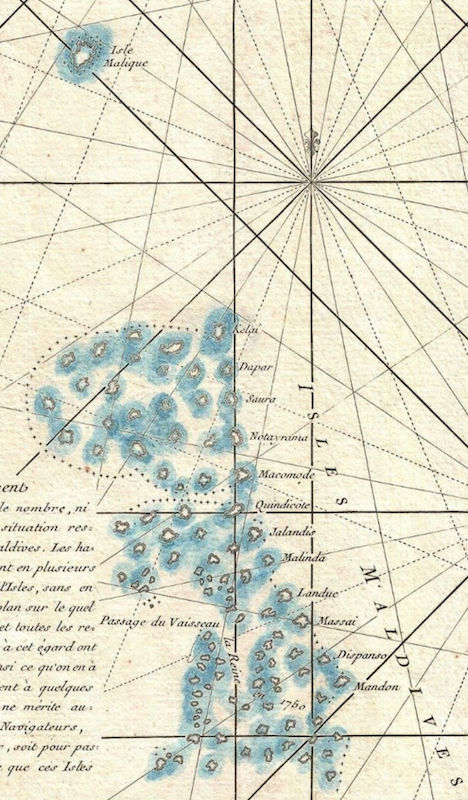
Discussion
No comments yet. Be the first to share your thoughts!
No comments yet. Be the first to join the conversation!
Join the Conversation
Sign in to share your thoughts under an alias and take part in the discussion. Independent journalism thrives on open, respectful debate — your voice matters.




